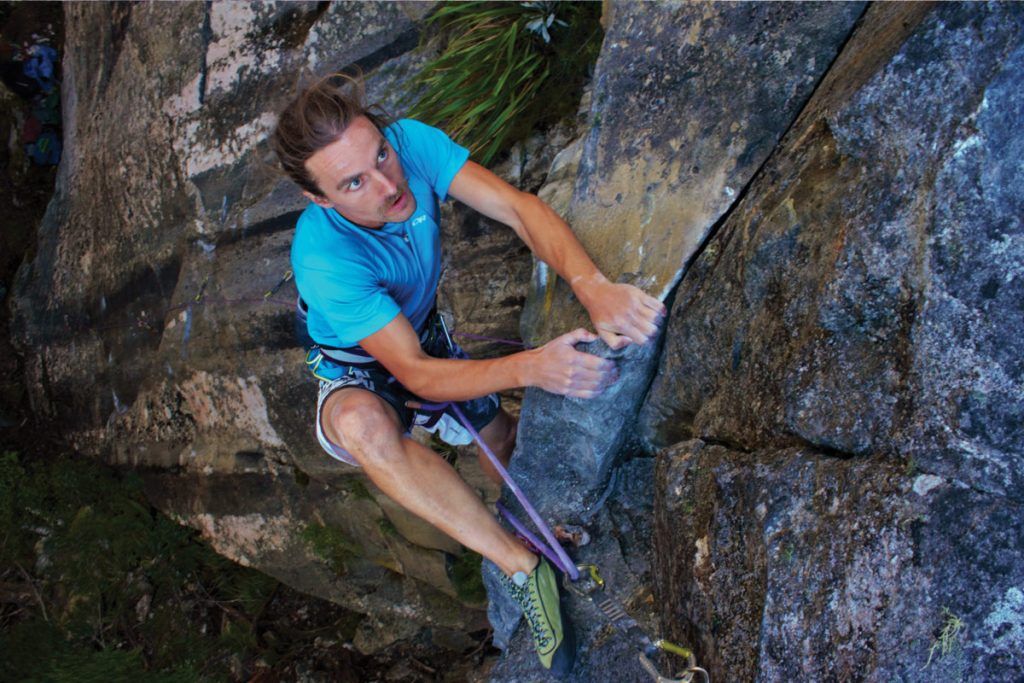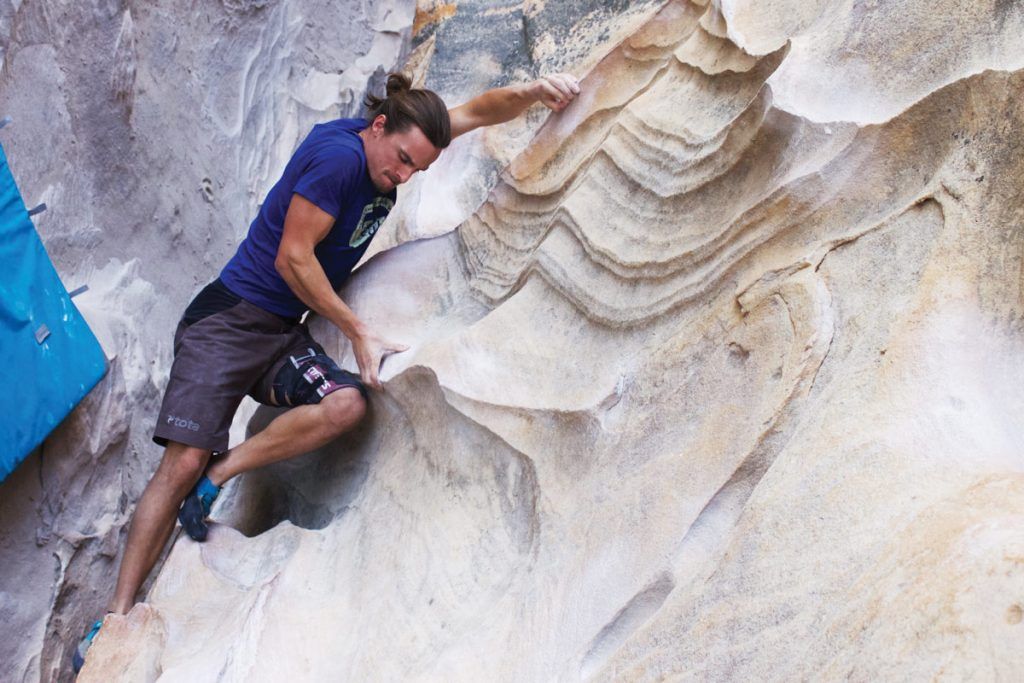Train Like An Athlete – The Climber Edition
Few of us can even begin to imagine clinging to the side of a more than vertical cliff-face and inching your way higher and higher until eventually clambering over the cusp: rock climbing definitely isn’t for the faint hearted. We talk to Joe Ward; the New Zealand Alpine Club National Boulder Series champion about the mental and physical challenges and dangerous moments that he has faced while climbing these unforgiving ascents.
Tell us a bit about your background, before you got to where you are today.
I grew up in the rolling hills of Worcestershire, England. After leaving school and drifting for a few years, I went to study Sport Education at college. Later, I went on to study International Relations at University and started to train for rock climbing at the local climbing wall. Since then, I have travelled all over the world in search of the best rock climbing. New Zealand has been my base since 2012. I’m now 32.
How did you first get into climbing?
My friend Freya first took me climbing on rock outside. We drove for two hours in my little red Mini to get there. As we were climbing it was cold, wet and windy. She thought it was great, I was less impressed. When we got back to the car the battery was flat so we had to push start it through big muddy puddles. Despite it being one of the most uncomfortable days of my life the feeling of climbing stuck in my head. I found myself thinking about it more and more. The satisfaction of standing on top of a rock and the challenge of working out how to get up there. I had to go again. I blame it on Freya. I have now been rock climbing for the past 15 or so years. Mountain walking has always been in my family and I used to spend hours looking at pictures of rock faces in my Grandpops collection of mountaineering books. At that time I didn’t really know what rock climbing was. I remember imagining ways to get to the top. For the last few years I have been obsessed with bouldering. Bouldering is low level climbing without ropes often over crash pads. With bouldering ranging from a couple of moves up to 10metres of climbing it tests fitness, strength and problem solving. It is also a big test for the head.
What do you do to stay fit and healthy for climbing?
Climbing is demanding physically and mentally. Before a climbing trip or big competition I put time and effort into the specific fitness I will require for the project. Over the years I have worked out what gets me into shape and seen what works for others. I follow my own training program and surround myself as much as I can with other climbers who are keen to work hard to improve their fitness and achieve their goals. Body weight exercise and general fitness are a big part of my training and I spend lots of time at climbing walls…
I turned off my head torch and hung there in the dark knowing that we had gotten ourselves into this…
It must be quite mentally demanding, how do you keep your mind cool when you are halfway up a rock face?
All the moves I have ever done, all of the experiences I have had, stay with me and help with the challenge ahead. I use visualisation when I need to perform at a high level and breathing techniques when things are getting out of hand, when the air is beneath my feet. I will often climb a route many times in my head before climbing it in real life. I’m sure we are all afraid of heights, it is natural to be. If the climbing is dangerous or very hard there are lots of rehearsal tactics climbers can use before going for the climb. This way each of the hand holds become familiar and the body positions learned. Kind of like rehearsing for a performance, you get to know it intimately. Rope climbing is also a partnership and I’m lucky to have some awesome people to hold my ropes and catch me if I fall and share in climbing experiences.

What has been one of the best moments for you so far in your climbing experience?
Recently winning the New Zealand Alpine Club National Boulder Series is right up there. Last year, I climbed a boulder called Moby Dick at Castle Hill in the South Island. Moby Dick is a historically significant climb and weighs in at grade V12. Bouldering problems at Castle Hill range from V1 up to V14, so this one is right up there and marked a real challenge for my bouldering skills, fitness levels and mental resilience. It took me three years to climb it.
Have you had any frightening moments?
Very early in my climbing life my friend Phil and I got lost on a cliff in the dark. It was a full moon and we started climbing at midnight by torchlight. After we had climbed a couple of rope lengths I was stood on a dark ledge holding Phil’s ropes when he called down that he was off the route, the climbing was far too hard and he couldn’t find a way back. I turned off my head torch and hung there in the dark knowing that we had gotten ourselves into this and at the time knowing I didn’t have the skills or experience to get us out. Phil eventually found a way up to the next ledge and called down that he was safe. I turned my torch back on and following his rope climbed as fast as I could. Scary stuff and a lonely place to be.
What is a piece of advice you’d give to others looking to follow a dream like yours?
Find a mentor. A great mentor will be your experienced advisor and have a desire to see you succeed. Search out someone who has walked the path before. Their experience can help guide you on your way and will help you save you lot’s of time and energy along your journey. A mentor will not always be your friend but will ask the right questions at the right time and challenge you to explore and grow. Generally, be open about your goals. You will be surprised how far people will go out of their way to support you, even if they don’t quite understand what it is you want to do. If you think you might enjoy rock climbing there are welcoming climbing walls up and down the country. Give it a go!

